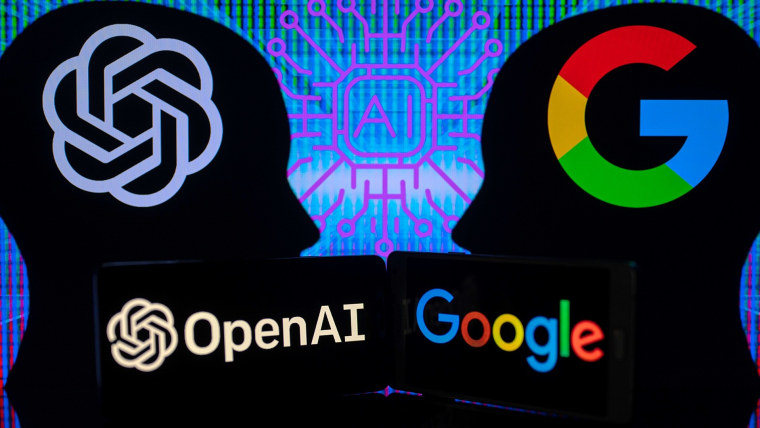Google on Wednesday revealed plans to infuse its powerful search engine with more advanced artificial intelligence technology, a response to major threats to its long-established position as the main gateway to the Internet.
The gradual change in how Google’s search engine operates is emerging three months after Microsoft’s Bing search engine began tapping the technology that powers artificially intelligent chatbot ChatGPT, which generated one of Silicon Valley’s biggest buzz since Apple launched the first iPhone. 16 years ago.
Alphabet Inc. Owned by Google, it is already testing its own conversational chatbot called Bard. Powered by Generative AI, the technology that fuels ChatGPT, the product is only available to people accepted from a waiting list. But Google announced Wednesday that Bard will be available to everyone in more than 180 countries and in more languages than English.
Bard’s multilingual expansion begins with Japanese and Korean before adding nearly 40 languages.
Now Google is ready to test the AI waters with its search engine, which has been synonymous with finding things on the Internet for the past 20 years and serves as a pillar of a digital advertising empire that generated more than $220 billion in revenue last year.
“We’re at an exciting inflection point,” Alphabet CEO Sundar Pichai said in a speech at a packed developers’ conference with one AI reference after another. “We’re redesigning all of our products, including search.”
More AI technology is coming to Google’s Gmail A “Help Me Write” option will generate long replies to emails in seconds and a “Magic Editor” tool for photos will automatically doctor images.
The AI transition starts cautiously with the search engine that serves as Google’s crown jewel.
The deliberate approach reflects the balancing act Google must negotiate, while maintaining its reputation for delivering reliable search results while also trying to stay cutting-edge — even though authoritative-sounding information can be undermined by artificial intelligence biases.
A tendency to generate deceptively convincing answers to questions euphemistically described as “illusions” was already developing during Bard’s initial testing, which relied on still-evolving generative AI technology like ChatGPT.
Google will take its next AI steps through a newly formed Search Lab, where people in the US can join a waiting list to test how productive AI will be integrated into search results. The tests contain more traditional links to external websites, where users can read more extensive information about the subjects questioned. It could take several weeks before Google starts sending invitations to those on the waiting list to test out the AI-injected search engine.
AI results are clearly tagged as an experimental form of the technology, and AI-generated summaries sound more realistic than conversation — a stark contrast to Bard and ChatGPT, which are programmed to convey more human-like personalities. “Should I give Tylenol to a 3-year-old?” Google is building guardrails that prevent AI baked into the search engine from responding to sensitive questions about health. – and financial matters. In such cases, Google will continue to redirect people to official websites.
Google isn’t predicting how long it will be before its search engine includes productive AI results for all comers. The Mountain View, Calif.-based company has been under intense pressure to demonstrate how its search engine maintains its leadership since Microsoft began loading AI into Bing, a distant second to Google.
The potential threat caused Alphabet’s stock price to plunge initially, though it has recently bounced back to where it was when Bing announced its AI plans to great fanfare. More recently, the New York Times reported that Samsung is considering leaving Google as the default search engine on its widely used smartphones, raising concerns that Apple may adopt a similar strategy with the iPhone unless Google shows its search engine visibly evolving. The coming AI-driven revolution.
Alphabet’s shares rose 4% on Wednesday after a wave of Google’s AI announcements closed at $111.75, the highest closing price since Bing began mingling with ChatGPT in early February.
As it begins to implement AI into its search engine, Google aims to outsmart Bard by tapping into the next generation of massive data sets known as “large language models,” or LLMs. The LLM that Bard relies on is called the Pathways Language Model, or PALM. The AI in Google’s search engine draws on next-generation PalM2 and another technology called the Multitask Unified Model, or MUM.
While people will have to wait to see how Google’s search engine deploys generative AI to find answers, the new tool will soon be more broadly available to all users. Google will be adding a new filter called “Perspectives” that will focus on what people are saying online about any topic entered into the search engine. The new feature will be placed alongside the existing search filters for news, images and videos.
In addition to using its annual tech showcase to show off its prowess in AI, Google unveiled the first foldable smartphone in its Pixel line-up of gadgets. Google’s foray into a new type of smartphone design that allows users to deploy the device as a mini-tablet comes nearly three years after Samsung, the leading maker of smartphones powered by Google’s Android software, introduced its first bendable model.
Foldable phones have so far remained a niche market, mostly priced between $1,500 and $2,000. Last year, about 14 million foldable phones were sold worldwide, accounting for just 1% of overall smartphone shipments, according to research firm International Data Corp.
Google’s foldable Pixel phone will sell for $1,800 and start shipping next month. It opens with a hinge and, of course, comes packed with AI.
#Google #giving #powerful #search #engine #artificial #intelligence #makeover

